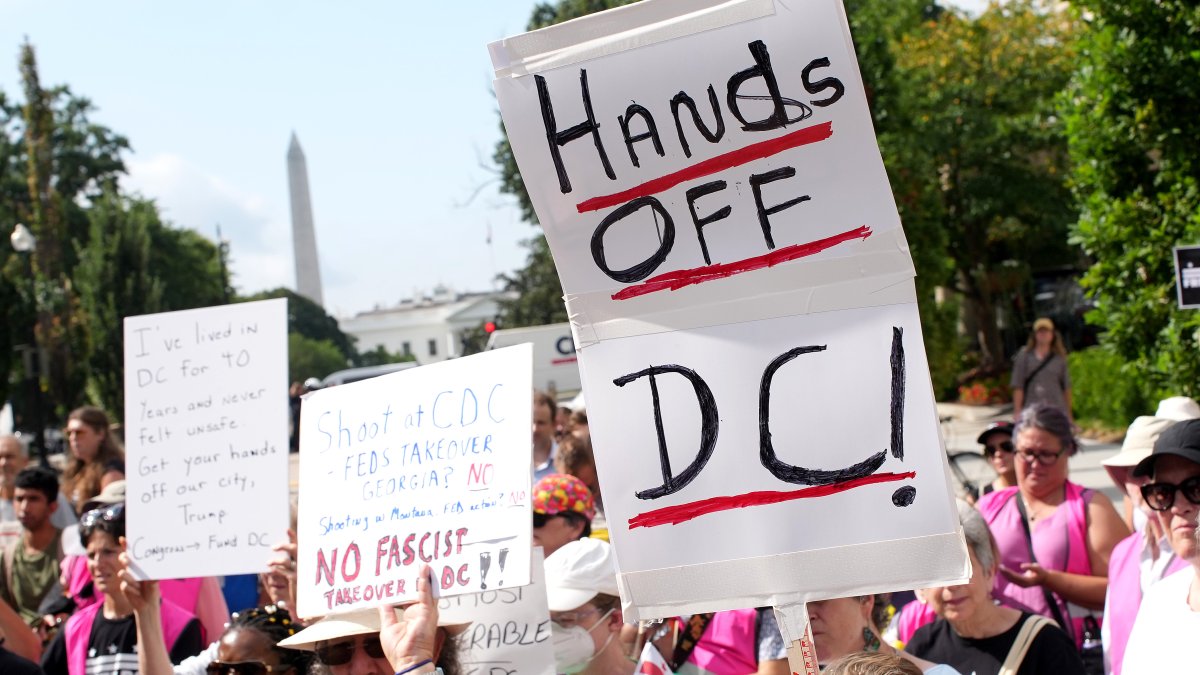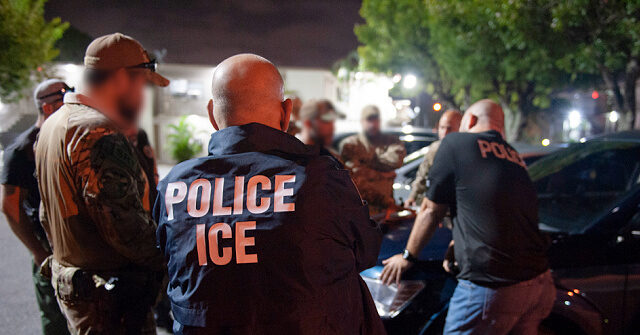Why Are Federal Agents Setting Up Checkpoints in D.C. After Trump's Directive?

Understanding the Law Enforcement Actions in Washington, D.C.
The recent actions taken by law enforcement in Washington, D.C., highlight a significant shift in the way crime is being addressed in the nation’s capital. Following President Donald Trump's directive, various law enforcement agencies set up checkpoints to combat crime in areas known for their mixed residential and commercial zones. This article aims to explore the implications of these developments, the reactions from the community, and what it signifies for the future of law enforcement in D.C.
The Setting of Police Checkpoints
On a busy Wednesday night, a police checkpoint was established just steps away from local establishments like the YMCA and popular bakery. Officers from the Metropolitan Police Department (MPD) collaborated with Homeland Security Investigations and other plainclothes agents to enforce a crackdown on crime as per the President's orders. The Shaw neighborhood, known for its vibrant community and commercial activity, became the focal point of this operation.
The Role of the National Guard
In an unprecedented move, President Trump placed D.C. police under federal control and dispatched National Guard troops to assist local law enforcement. This heightened presence, involving around 800 activated National Guard members, is intended to bolster efforts aimed at reducing crime. The command structure of the National Guard allows for increased coordination and resources, especially during high-stakes law enforcement operations.
Community Reactions to Law Enforcement Presence
The establishment of the checkpoint quickly drew the attention of over 100 protesters. While some residents expressed support for the increased law enforcement presence, others voiced significant concerns regarding the implications of federal control over local policing. This division in public opinion reflects the broader national debate about law enforcement practices and the balance of power between federal and local authorities.
Voices from the Community
Residents like Christopher Her appreciated the heightened efforts to address crime, particularly citing the deterioration of public spaces. In contrast, others like Morgan Komlo criticized the portrayal of D.C. as unsafe and expressed worry over the potential for increased tensions between law enforcement and local citizens. The differing viewpoints underscore the complexity of the issue, where safety and civil liberties are at odds.
Law Enforcement Operations and Arrests
Since the initiation of these operations, the federal law enforcement agencies reported making more than 100 arrests, including a notable number involving firearm-related charges. This statistic indicates a direct impact of the increased law enforcement presence on crime rates, although it raises questions about the long-term effects on community relations.
The Federalization of D.C. Police
The decision to federalize the D.C. police, lasting a maximum of 30 days unless further legislation is passed, has been met with mixed reactions. Mayor Muriel Bowser characterized this move as an "authoritarian push," while acknowledging that the President has the legal authority to execute such measures. This tension between local governance and federal intervention is a crucial element of the ongoing discussion surrounding law enforcement in D.C.
Historical Context of Crime Rates in D.C.
Despite the recent uptick in law enforcement visibility, data from January indicated that violent crime rates in D.C. were at their lowest in decades, down 35% from the previous year. This fact is often overshadowed by sensational incidents that drive the perception of a crime wave, leading to calls for more stringent law enforcement measures.
Implications for Future Policing Strategies
The current law enforcement strategy highlights a shift towards a more militarized approach to policing, raising questions about its sustainability and effectiveness in the long term. The focus on cracking down on crime through checkpoints and federalized control has implications for community trust and engagement with law enforcement.
Conclusion: The Path Ahead for D.C. Law Enforcement
As Washington, D.C. navigates this complex landscape of law enforcement, community engagement, and federal oversight, the outcome of these initiatives will be closely watched. The balance between ensuring public safety and respecting civil liberties is delicate and critical to the future of policing in the nation’s capital. The ongoing dialogue among residents, law enforcement, and lawmakers will ultimately shape the trajectory of these efforts.
FAQs about Law Enforcement Actions in Washington D.C.
What prompted the establishment of police checkpoints in D.C.?
The checkpoints were set up in response to President Trump's directive aimed at combating crime in Washington, D.C. The increased visibility of law enforcement was intended to address community concerns over safety.
How has the community reacted to the increased law enforcement presence?
Community reactions have been mixed, with some residents supporting the crackdown on crime, while others express concerns regarding federal overreach and the potential for increased tensions between law enforcement and local citizens.
What is the current crime rate in D.C.?
Recent data indicates that violent crime in D.C. is at its lowest level in over three decades, showing a significant decrease from the previous year. This information complicates the narrative of a crime wave necessitating drastic law enforcement measures.
What are the long-term implications of federalizing D.C. police?
Federalizing D.C. police raises concerns about community trust, civil liberties, and the balance of power between local and federal authorities. The effectiveness of this strategy in reducing crime while maintaining public trust remains to be seen.
As Washington, D.C. continues to navigate these changes, one must consider what the future of policing will look like in urban environments across the country. How can law enforcement agencies effectively balance safety and community trust? #LawEnforcement #WashingtonDC #CrimePrevention
```Published: 2025-08-14 04:31:36 | Category: Trump GNEWS Search



